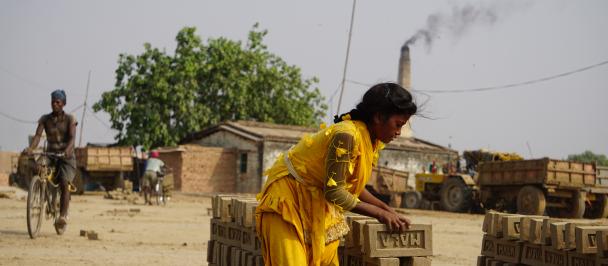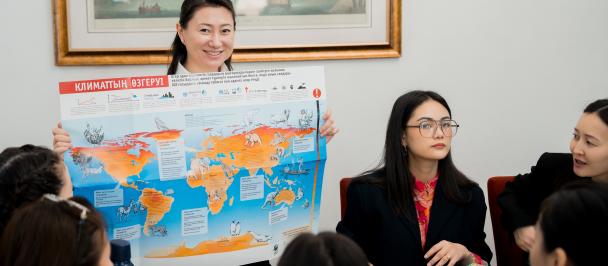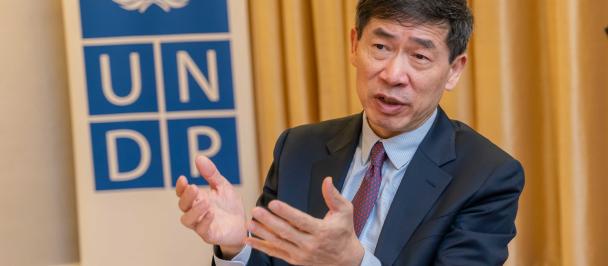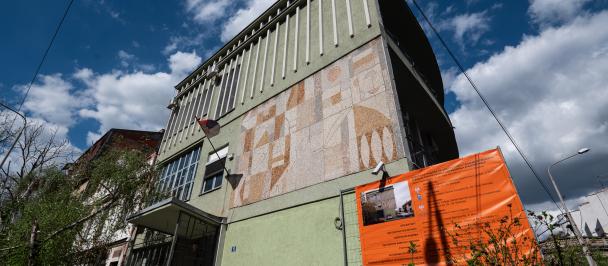Remarks by Ms. Louise Chamberlain at the press-conference for the launch of the UNDP-UNEP Joint Assessment of Air Quality in Bishkek
October 31, 2022
Dear ladies and Gentlemen,
Good morning!
My name is Louise Chamberlain and it is my pleasure and honour to welcome you today to this press conference dedicated to the launch of the UNDP-UNEP Joint Assessment of Air Quality in Bishkek. Today is World Cities Day and we look forward to address the queries and questions you have on the results and implications of this very important study.
We are discussing the findings of what is the first comprehensive evidence-based assessment of the causes of air quality in the capital of the Kyrgyz Republic. It was commissioned jointly by two UN Agencies, the United Nations Development Programme, UNDP, and the United Nations Environment Programme – you will shortly hear my colleague Aidai Kurmanova speal and carried out by the Finnish Meteorological Institute in cooperation with another international expert and a local research team. We have with us Katja Loven from FMI who will summarise the findings for us.
Nowadays we all recognise how air pollution is a huge issue for Bishkek. In the past couple of winters Bishkek has topped many global air quality rankings worldwide as being the city with the worst air quality. This is not just about the natural environment: first and foremost, it is a critical human development issue, which is tightly coupled with environmental impact, including the typical predicament of cities.
We also know that the Sustainable Development Goals, agreed among the world’s countries in Kyrgyzstan in 2015 aim to tackle the issue of how sustainable human development, the goal to improve air quality is an integral part of Agenda 2030 and the sustainable development agenda. Certainly it touches also on Goal 3 on Good Health and Wellbeing, Goal 11 on Sustainable Cities and Communities as well as Goal 13 on Climate Action.
Specifically, air pollution has a direct impact on the health of Bishkek citizens. Across 2010-2019, approximately 12-13% of all deaths in Kyrgyzstan were attributed to air pollution. In 2015, the costs of health care associated with conditions caused by air pollution were estimated at USD 388 million or 6% of Gross National Income. Air pollution – indoor and outdoor – affects the most vulnerable and marginalised people. We know from other research that this likely also means that women suffer more, due to their domestic responsibilitis.
It was with a view to help strengthen national efforts in tackling major environmental health risks that, upon a request by the Government of the Kyrgyz Republic, last year UNDP Country Office in partnership with UNEP undertook a joint study focusing to assess which key emission sources contribute to air pollution in Bishkek, with a view to help develop a road map to strengthen air quality management and reduce harmful pollution by taking action where it could have the greatest impact first.
Accordingly, this study is the first comprehensive analysis that evidences key emission sources and their impact on ground-level air pollution concentrations in Bishkek. The study actually provides decision-makers for the first time with strong, scientific evidence for policy-making. Along with the deep dive into the causes of air pollution, the study includes a proposed Roadmap for Implementation of the Priority Policies and Measures which can be used to prioritise air pollution interventions, focusing on which actions will result in the biggest health gains.
The study also clearly underscores the importance of system-wide approaches and a whole-of-government, whole-of-society approach to address air pollution. There is a need for action across many different sectors and segments of society. It is the people’s demand for energy that is driving air pollution so in to address it effectively, we need first an experimental approach to find effective solutions and then substantial investments to scale up the best solutions, in particular affordable and clean technologies for household heating. It is also important to bolster the electricity system through renewables, and to improve the fuel standards, regulations, and technologies in the transport sector. As the study shows, much can be gained from deploying strategies to reduce the volume of waste and apply waste-to-energy solutions.
The UNDP-UNEP joint assessment provides an important foundation for other research to build on, some of which is already under way. It opens the door for further understanding Bishkek’s air pollution, its sources and impacts, and how to improve air quality.
Regarding air quality management in Bishkek, the study finds that it needs to be further strengthened to protect citizens against the health and environmental impacts of air pollution. To this end, three key aspects should be considered.
First, there is a need to improve Bishkek’s air quality monitoring network by establishing more reference-level air quality monitoring stations and to enhance the capacity of expert organisations responsible for operating the network to process and analyse data.
Second, continue to apply low-cost air quality sensors play a significant role in informing the population about air pollution in Bishkek, and should be used to provide actionable information on air quality to the public.
Third, modernization of air quality legislation and effective coordination and management of the systems that support air quality management is essential.
Finally, it is important to note that climate change and air pollution are significantly interlinked and that tackling air pollution is part of the climate action agenda. The vast majority of air pollution prevention actions also strongly support climate change mitigation and vice versa. Investments in climate action often pay off quickly in the short-term through air quality co-benefits via savings in the health sector.
As individuals have limited opportunities to control air pollution, this issue requires bold joint action driven by local, national, and regional level policymakers and supported by development partners, local and international expert and activist communities.
UNDP is committed to support a range of country partners in addressing air pollution and continue supporting Kyrgyzstan in implementing its climate commitments and formulating specific climate policies to deliver on the Sustainable Development Goals.
In closing, we hope that today’s presentation will help decision makers gain an improved understanding of the management of air quality in Kyrgyzstan. We hope that this study will encourage the further specialised research on air quality in Bishkek and further support the emergence of a broad consensus on the way forward.
Thank you.

 Locations
Locations



